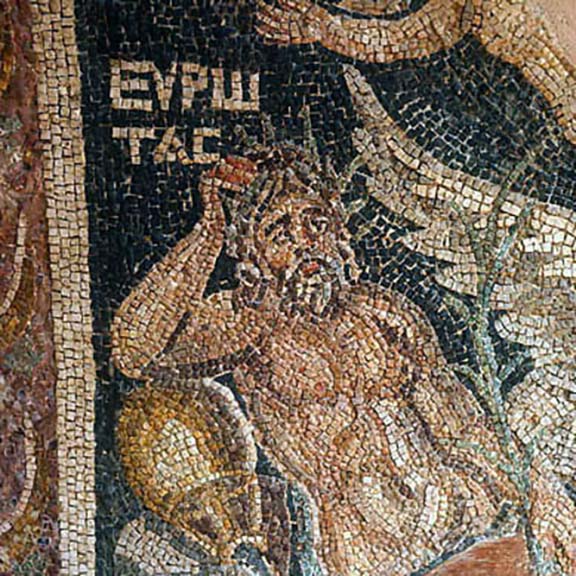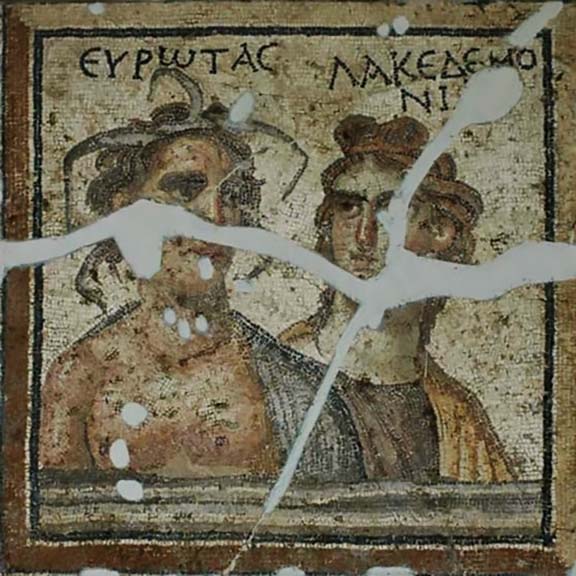Eurotas
In Greek mythology, Eurotas (Ancient Greek: Εὐρώτας) was a king of Laconia (the area in which Sparta is located in).
Eurotas was the son of King Myles and grandson of Lelex, eponymous ancestor of the Leleges. The Bibliotheca gives a slight variant of the mythological generation of Eurotas, who was described as the son of Lelex, born from the ground, by his wife Cleocharia.
In some accounts, his mother was called Taygete instead. Eurotas had no male heir, but he did have two daughters Sparta and Tiasa.
Mythology
Eurotas bequeathed the kingdom to Lacedaemon, the son of Zeus and Taygete, after whom Mount Taygetus was named, according to Pausanias. This Lacedaemon married his daughter Sparta and renamed the state after his wife.
In other terms, Eurotas would give his daughter Sparta in marriage to Lacedaemon, the son of Zeus; and as Eurotas had no sons, it was Lacedaemon who succeeded Eurotas as King of Laconia. The kingdom was subsequently renamed Lacedaemon (Lacedaemonia), although it was also known as Sparta, after Eurotas' daughter.
Eurotas as one of the Potamoi
Some refer to Eurotas as a river god, a Potamoi, and indeed the main river of Laconia is named the Eurotas. According to Greek mythology, the Potamoi were the 3000 sons of Oceanus and Tethys, whilst such parentage is not given to Eurotas.
Nevertheless, the River Eurotas is said to be named for the king, but an explanation is given that the Eurotas was not a natural river, but a canal, made by the king to drain the swamps and marshlands of Laconia.
Or as Pausanias says: "It was Eurotas who channelled away the marsh-water from the plains by cutting through to the sea, and when the land was drained he called the river which was left running there the Eurotas."

Sources
Pausanias, Graeciae Descriptio 3.1.1
Pseudo-Apollodorus, Bibliotheca 3.10.3.
Scholia on Pindar, Pythian Odes 4.15, Olympian Odes 6.46 & ad Lycophron, 886
Pausanias, Graeciae Descriptio 3.18.6
Pausanias, Graeciae Descriptio 3.1.2
Pausanias (1971). Pausanias Guide to Greece. Volume 2, Southern Greece. Translated by Peter Levi. Penguin Books. p. 10 Note 3.













